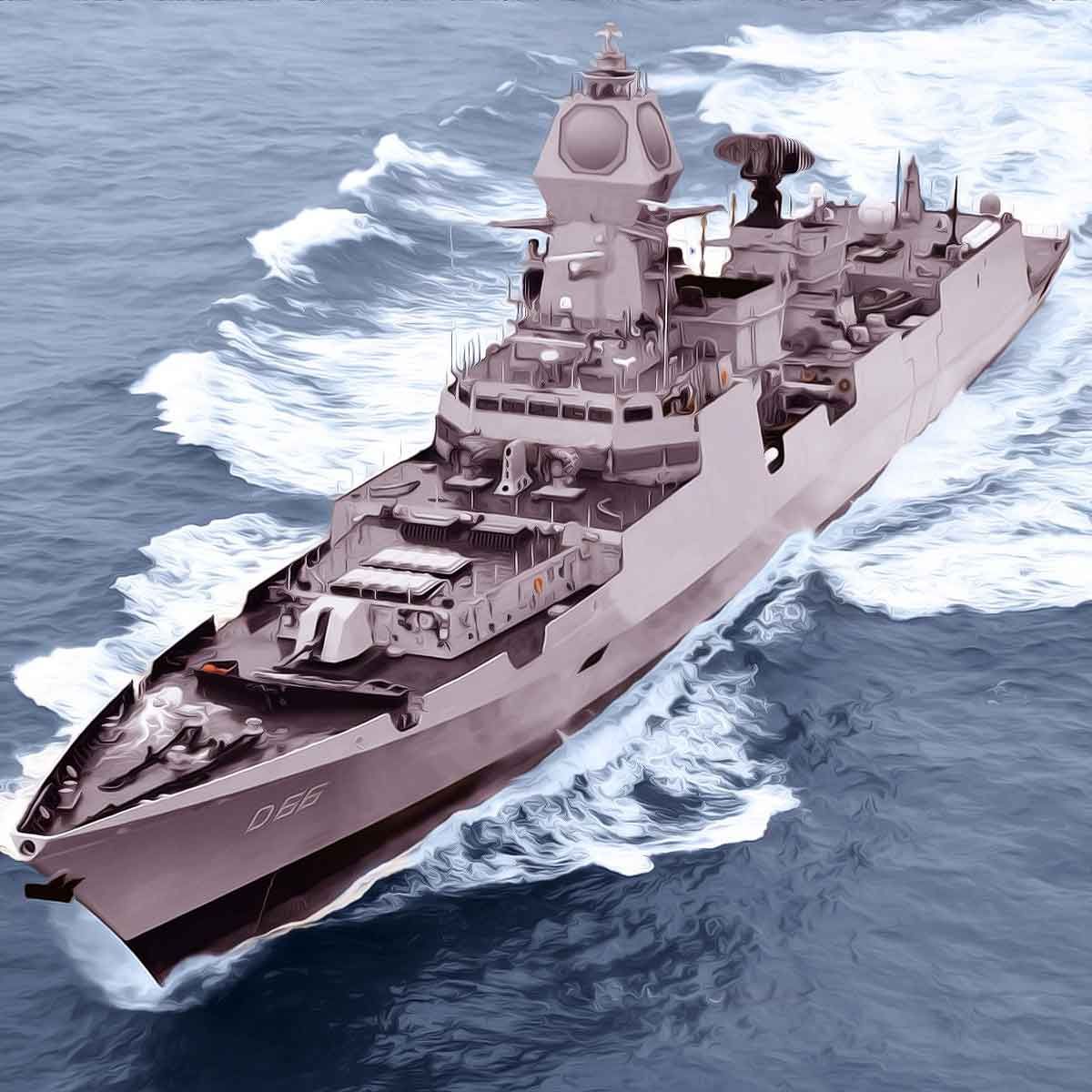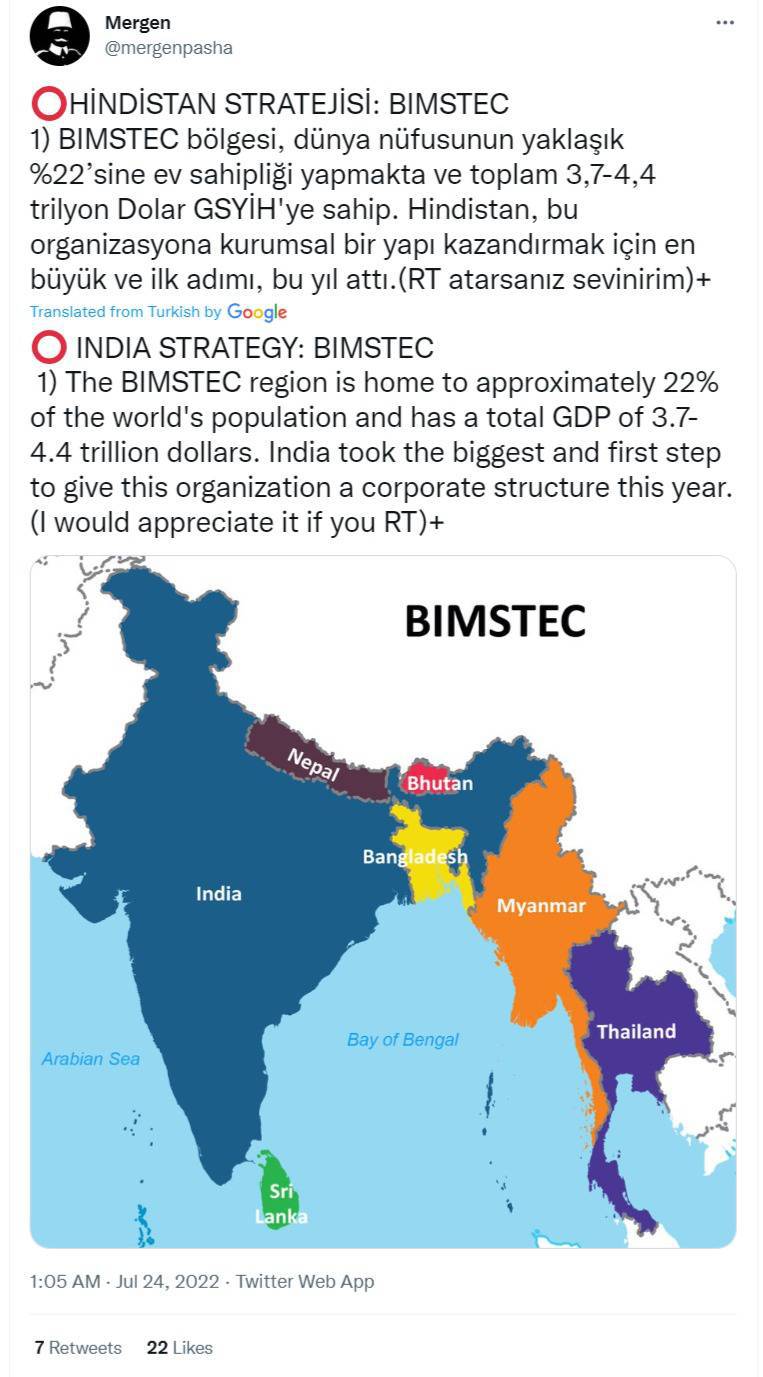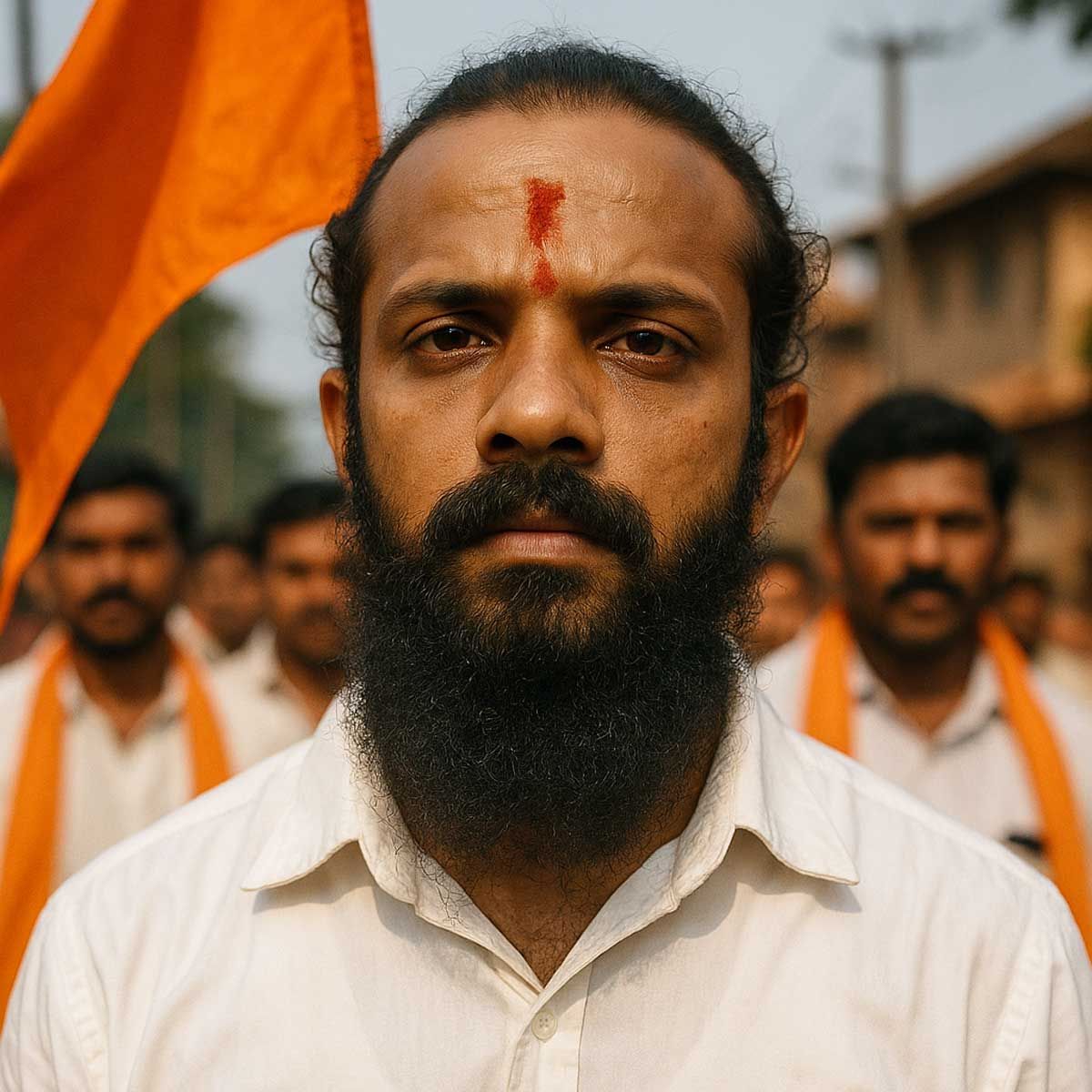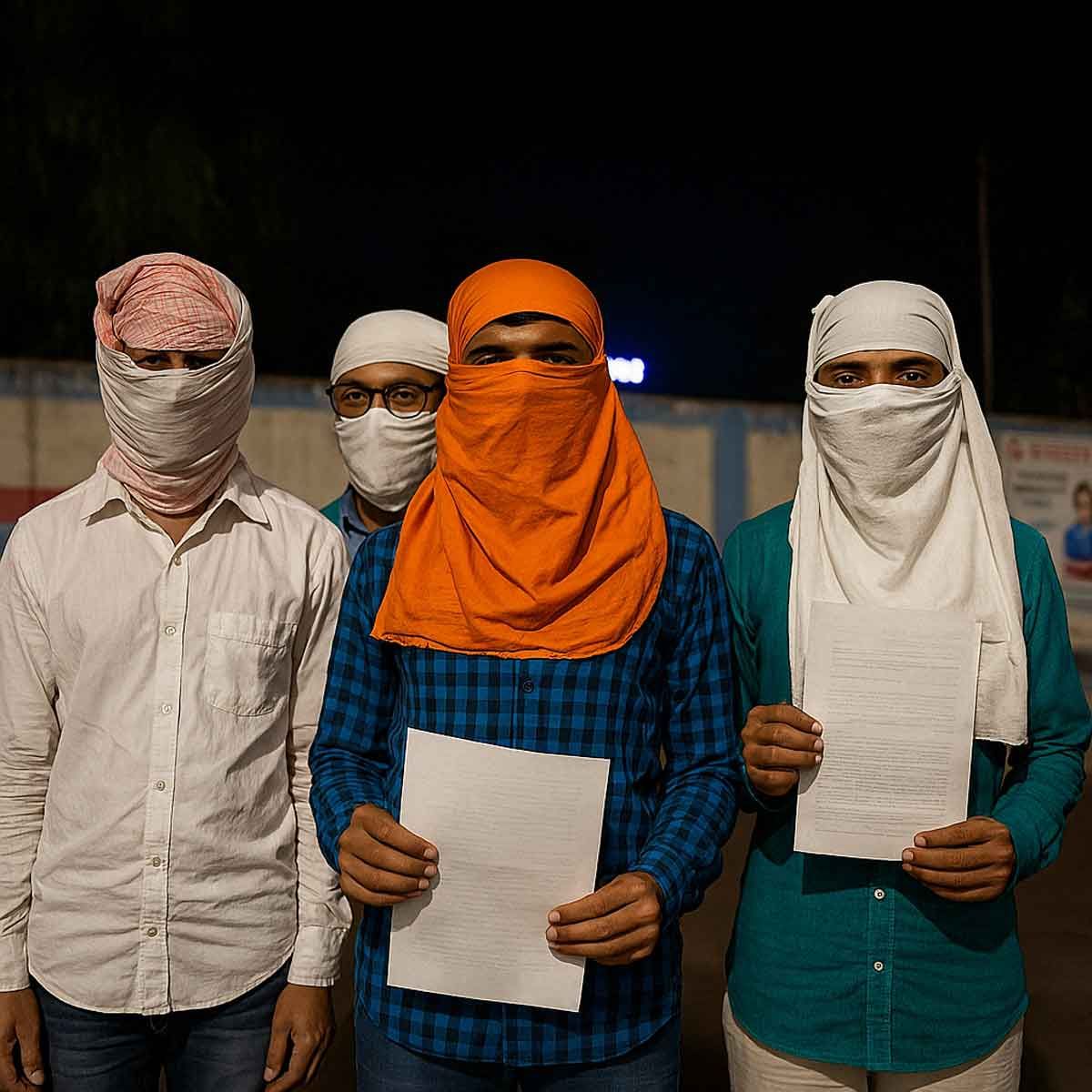More Coverage
Twitter Coverage
Satyaagrah
Written on
Satyaagrah
Written on
Satyaagrah
Written on
Satyaagrah
Written on
Satyaagrah
Written on
JOIN SATYAAGRAH SOCIAL MEDIA
“Would you learn the secret of the sea? Only those who brave its dangers, comprehend its mystery!”: Indian Ocean is finally India’s, Beijing tried to repeat misadventures of South-China Sea but India gave a strong message by thwarting China’s jingoism

The Indian Ocean is a vast theater, stretching from the Strait of Malacca and the western coast of Australia in the East to the Mozambique Channel in the West. It encompasses the Persian Gulf and the Arabian Sea in the North, all the way down to the southern Indian Ocean.
Along the coasts of this huge geographic expanse are countries that are home to some 2.7 billion people. The Indian Ocean’s key subregions are South Asia, the Middle East, the eastern coast of Africa, and the islands dotting the ocean from Sri Lanka in the East to the Comoros Archipelago in the West.
The region’s size and diversity explain its geoeconomic importance. Its regional forum, the Indian Ocean Rim Association, includes countries as politically and socially different as Australia, Indonesia, Iran, and South Africa, leading to striking new power dynamics. From resource-rich Africa and the energy-dense Middle East to South Asia’s labor markets and manufacturing industries, the stability of the Indian Ocean is crucial to the global economy.
“[Matsya said] ‘I have saved you from this cataclysm’ [and Manu] set about his work of creating all beings in proper and exact order.” – The Mahabharata, iii.186
The Indian Ocean matters today, arguably more than ever. It is a major conduit for international trade, especially energy. Its littoral is vast, densely populated, and comprised of some of the world’s fastest-growing regions. The Ocean is also a valuable source of fishing and mineral resources. And yet its governance and security are under constant threat of being undermined, whether by non-state actors such as pirates, smugglers, and terrorists or by furtive naval competition between states.
The Indian Ocean basin is of particular importance for India, as the region’s most populous country and geopolitical keystone. Although India has long been preoccupied with continental considerations, it has recently begun to re-evaluate its priorities. India’s Indian Ocean Region strategy—which in only just taking shape—conforms closely to global priorities for preserving the Ocean as a shared resource: an important channel for trade, a sustainable resource base, and a region secure from the heightened military competition, non-state actors, and catastrophic natural disasters. Achieving these objectives will require further investments in capacity, greater transparency and confidence-building measures, and enhanced institutional cooperation.
‘Bharat ek shanti priya desh hai ye to puri duniya ne dekha, par hum shanti ke liye apni shakti ka bhi pradarshan kar sakte hain,’. These are the words of former Prime Minister late Pt. Atal Vihari Vajpayee. And for the first time, India is following this principle in the Indian Ocean region.
Indian Ocean is not the same
There was a time, not too long ago, when the Indian Ocean and India used to be synonymous with people. The common perception was that the Indian Ocean solely belongs to India. This was accomplished through trade and navy in the region.
However, over the last few decades, the picture has started tweaking, as other powers, specifically China, are challenging the dominance of India in the Indian Ocean region. And a strange kind of South China sea-type race has begun in the region. This time India is asserting its supremacy.
|
New Delhi hits two birds with one stone
Beijing was trying to repeat the misadventures of the South-China Sea in the Indian Ocean region. While the whole world is fearful of China, India has given a strong message by thwarting China’s jingoism.
After India’s objection, Sri Lankan President Ranil Wickremesinghe asked China to defer the arrival of the Chinese military vessel, as he made it clear that even if, the Hambantota Port has been leased off by the Chinese, Sri Lanka cannot allow it to become a strategic hub of the paper dragon.
With this muscle flexing, India has not only shown China its place but has also persuaded the neighboring country to fall in line.
|
IOR - The lifeline of India
The action against China was necessary, as New Delhi cannot allow a strategic hub of the paper dragon in its proximity. The Indian Ocean not just has ample resources and minerals buried under the sea bed, but is also a geopolitical keystone, and strategically crucial. To add to this, Guarding the Indian Ocean region is a necessity for New Delhi. India has a coastline of 7,516 km and an Exclusive Economic Zone (EEZ) of 2.03 million sq. km. Talking about volume, over 90 percent of India’s trade, and talking about value, 70 percent of trade, is transported through waters.
India is the net security provider in the Indian Ocean region, and India’s firm presence in the waters is not only necessary for New Delhi but for the entire world.
|
India’s masterstroke in the Indian Ocean region
The Indian Ocean region comprises continental Asia, continental Africa, the Indonesian archipelago, and Australia among other island nations. India has been in talks with the Philippines, Malaysia, and Vietnam regarding defence deals and hence there are growing military ties in the Indian Ocean region.
 BIMSTEC |
Although Diplomacy is tough, India is busy achieving its goals through the principles of diplomacy only. With a diplomatic edge having Dr. Jaishankar as the caretaker of foreign policy, India is looking at releasing its goals such as the Look East policy, Indian Ocean Rim Association for Regional Cooperation, BIMSTEC, and Ganga-Mekong Cooperation.
To add to this, India has a firm grip on nations like Maldives and Singapore and is heavily investing in Andaman and Nicobar Islands in order to convert them into a strategic base.
As I started, we as a nation are very peace-loving, but we can demonstrate our power in order to protect our peace, and the Necklace of Diamonds and Double Fish Hook strategies of Indian forces stand in a deposition for the same.
References:
tfipost.com
 Support Us
Support Us
Satyagraha was born from the heart of our land, with an undying aim to unveil the true essence of Bharat. It seeks to illuminate the hidden tales of our valiant freedom fighters and the rich chronicles that haven't yet sung their complete melody in the mainstream.
While platforms like NDTV and 'The Wire' effortlessly garner funds under the banner of safeguarding democracy, we at Satyagraha walk a different path. Our strength and resonance come from you. In this journey to weave a stronger Bharat, every little contribution amplifies our voice. Let's come together, contribute as you can, and champion the true spirit of our nation.
 |  |  |
| ICICI Bank of Satyaagrah | Razorpay Bank of Satyaagrah | PayPal Bank of Satyaagrah - For International Payments |
If all above doesn't work, then try the LINK below:
Please share the article on other platforms
DISCLAIMER: The author is solely responsible for the views expressed in this article. The author carries the responsibility for citing and/or licensing of images utilized within the text. The website also frequently uses non-commercial images for representational purposes only in line with the article. We are not responsible for the authenticity of such images. If some images have a copyright issue, we request the person/entity to contact us at This email address is being protected from spambots. You need JavaScript enabled to view it. and we will take the necessary actions to resolve the issue.




























